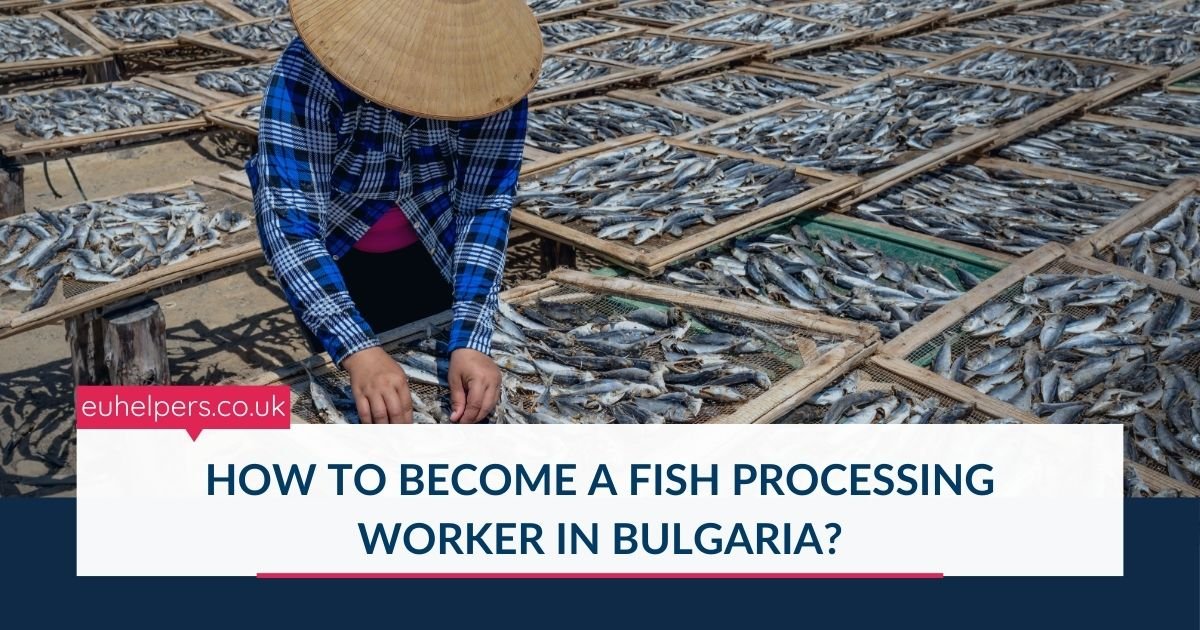Bulgaria’s fish processing industry offers stable employment opportunities, especially for individuals seeking work in the food production and manufacturing sector. These roles are often open to both local and international workers and provide a way to gain experience in a specialized field with the potential for skill development and long-term employment.
1. Finding a Job in Fish Processing
There are several ways to search for fish processing jobs in Bulgaria:
-
Online Job Boards:
Job listings for fish processing roles are commonly posted on employment websites, including those focused on international labor markets. -
Recruitment Agencies:
International and local recruitment firms often connect job seekers with employers in Bulgaria's food processing sector. -
Direct Applications:
Some fish processing plants and seafood companies advertise job openings directly on their websites or in local media. Contacting these businesses directly can be an effective approach.
2. Typical Job Requirements
Working in a fish processing facility involves specific physical and environmental demands, and employers may have a range of expectations:
-
Physical Fitness:
Many tasks are physically demanding and include lifting, sorting, and standing for long periods. -
Cold Working Environment:
Fish processing usually takes place in refrigerated or chilled facilities, requiring workers to be comfortable working in low temperatures. -
Job-Specific Skills:
Some roles may require experience or skill in:-
Fish cutting and filleting
-
Packaging and labeling
-
Operating processing machinery
-
Quality control and inspection
-
-
Language Abilities:
While fluency in Bulgarian is not always mandatory, basic knowledge of either Bulgarian or English can be helpful for communication with supervisors and colleagues. -
Experience:
Previous work in fish or food processing is often preferred but not always required, as many companies provide on-the-job training.
3. Visa and Immigration Process for Non-EU Citizens
If you are not a citizen of the European Union, you will need the appropriate authorization to live and work in Bulgaria.
Type D Long-Stay Visa
This visa is required for employment lasting more than 90 days. The application process involves two key steps:
-
Work Permit:
The Bulgarian employer must first apply for a work permit on your behalf through the national employment authorities. -
Visa Application:
Once the work permit is approved, you can apply for a Type D visa at a Bulgarian embassy or consulate in your home country.
Required Documents Include:
-
A valid employment contract
-
Proof of qualifications or relevant experience
-
Clean criminal record certificate
-
Proof of accommodation in Bulgaria
-
Valid health insurance
-
Completed visa application form
-
Passport and recent photographs
Once you enter Bulgaria with a Type D visa, you must apply for a residence permit within 90 days.
4. Training and Skill Development
Many fish processing employers in Bulgaria offer on-the-job training to new workers. This allows employees to learn specific skills required for their roles, even if they lack previous experience in the field.
In addition to in-house training, some workers may receive specialized instruction in areas such as:
-
Food safety standards (e.g., HACCP compliance)
-
Quality assurance procedures
-
Microbiological safety and hygiene practices
Workers who pursue additional certifications or attend workshops related to seafood processing and food handling can enhance their qualifications and increase their career prospects in the industry.
5. Salary Expectations
The salary for fish processing workers in Bulgaria can vary depending on experience, job responsibilities, and employer size. However, here are general estimates for 2025:
-
Entry-Level Workers: BGN 900–1,100 per month (approx. €460–€565)
-
Experienced Workers or Machine Operators: BGN 1,200–1,500 per month (approx. €615–€770)
-
Supervisory or Specialized Roles: BGN 1,600–1,900 per month (approx. €820–€975)
Some employers may also provide additional benefits such as free or subsidized meals, accommodation, or transport assistance, especially for foreign workers.
Becoming a fish processing worker in Bulgaria offers a practical entry point into the country’s growing food production sector. With opportunities for both newcomers and experienced workers, this role provides a chance to develop specialized skills, earn a stable income, and potentially build a long-term career. By understanding the job requirements, visa process, and training opportunities, you can take the right steps toward working in Bulgaria’s fish processing industry.

